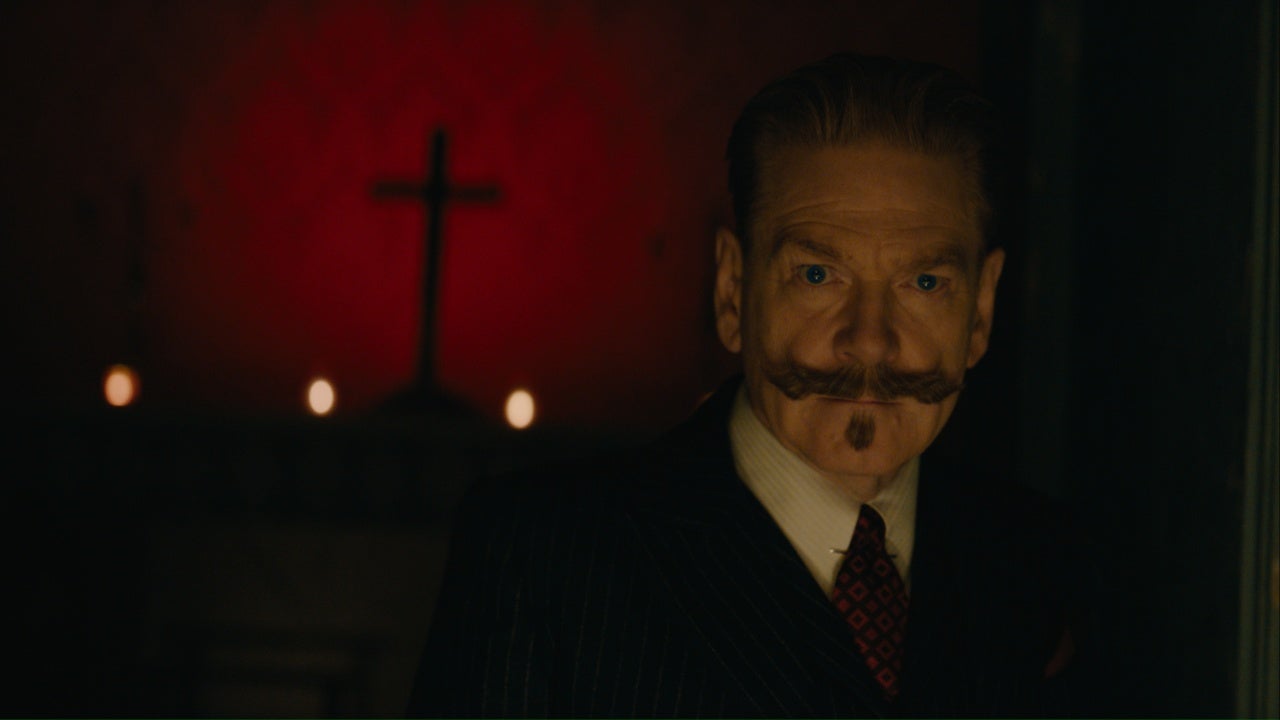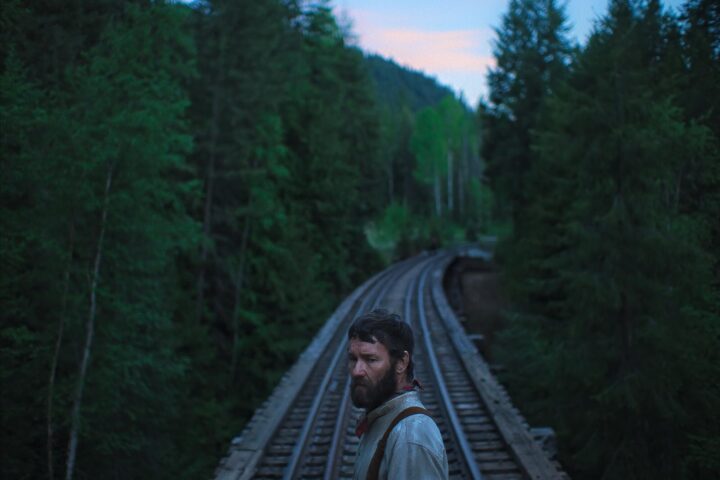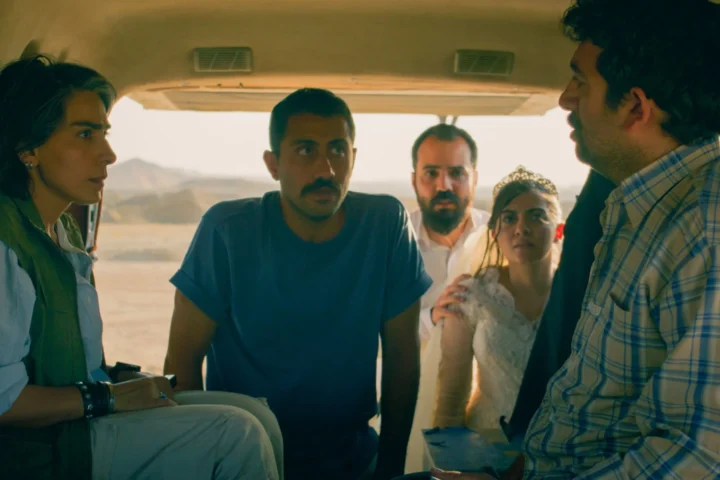As a director, Kenneth Branagh is foremost a showman—in fact his subtlest picture was his poignant childhood memoir Belfast—so it comes as a bit of a surprise that his latest, A Haunting in Venice, very loosely based on Agatha Christie’s 1969 novel Hallowe’en Party and ripe for thrills, is a surprisingly dull affair. The third in Branagh’s glossy, middling trilogy of classical, old school Christie redux throwbacks following the passable Murder on the Orient Express (2017) and disposable Death on the Nile (2022), A Haunting in Venice is curiously perfunctory. As expected from the Christie formula, we once again return to the puzzle master’s chess board, populated by a disparate blend of high and low born suspects, red herrings, exotic locales and meticulous plotting. But this time, it feels lethargic.
Branagh, on his third outing as Christie’s venerable resident genius mystery solver Hercule Poirot, plays a somewhat wearier version of the ace detective, retired in 1947 Venice (well-shot in the opening and conclusion) and rebuffing hordes of unsolved mysteries before receiving an unexpected visit from old friend and celebrated mystery novelist, Christie staple (and surrogate) Ariadne Oliver, played by a game Tina Fey, who brings a lift to the picture with twinkle-in-her-eye verve; it takes a moment to adjust to Fey’s spritely delivery, but she does this plodding picture a favor.

Oliver arrives with an offer—she’s to attend a children’s Halloween party at a mysterious palazzo owned by one Rowena Drake (Kelly Reilly), a glamorous former singer whose teen daughter mysteriously drowned in the canal some years earlier, and whose spirit she now believes haunts the decaying Venetian chateau. As fodder for her next book, Ariadne wants disbelieving, logical to a fault Poirot to be her plus one for a post-party seance. This communion with the dead will be hosted by master medium Joyce Reynolds (Michelle Yeoh, very good), and will confirm for Oliver that, in fact, Reynolds is a fraud, the basis of Oliver’s new novel. The reluctant Poitot in tow, the pair sets out to reveal the fakery, but wouldn’t you know it—someone immediately ends up dead, the victim of a spectacular impaling, very nicely, well, mounted. And then there is the matter of a potential bobbing-for-apples drowning that turns on mistaken identity, Poirot himself in harm’s way.
So far, so good, but once the usual round of suspect queries begins, A Haunting in Venice slows down considerably, and that is because the suspects themselves are an off-the-shelf crew of one-note bores, their requisite testimonies and alibis less than compelling. They include Drake herself, well-played by Reilly but given little to do; the deceased daughter’s betrothed (a one-note Kyle Allen); Reynolds’ young apprentices (Ali Khan, Emma Laird), who may be hiding their real agenda; a working-class doctor and his overly studious son (Belfast returners Jamie Dornan and Jude Hill); a longtime, loyal caretaker (Stillwater’s terrific Camille Cottin, best in show); and a more than meets the eye, guarded former cop (Riccardo Scarmacio).
The new wrinkle this time out for the skeptical Poirot is that something supernatural may actually be haunting the manor, and as he comes closer to believing that the deceased girl’s spirit could be guiding his inspection, the usual reversals and revelations pile up in a picture with nearly as many cheap scares as the equally wan The Nun II. Such clearly commercial elements are antithetical to the spirit of the Clue-like drawing room prototype for a Christie mystery, and at the same time too muted to generate much fear. If you are going to revamp Christie’s original story to include haunted house horror—and seances have been done many times in the movies so at face value have lost their luster—it had better provide a few frights on the order of, say, 1973’s gothic chiller The Haunting of Hell House. A Haunting in Venice fails to muster any sense of real danger.
While at least partially handsomely produced, the palazzo itself is underused in a picture that focuses largely on close-ups when it could have been loaded with atmospheric dread. Strangely, for a film with a pair of murders, creepy spirits and intimations of horror, A Haunting in Venice is largely bloodless. Scripted by Branagh and co-writer Michael Green, the picture betrays its estimable cast, would-be terror and seductive Venetian setting and ultimately adds up to less than the sum of such parts, feeling largely arid, verbose rather than cinematic and routine in its denouement, which savvy viewers may discern early. Who looks the most guilty? Bingo.
2 stars



